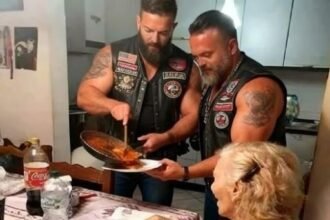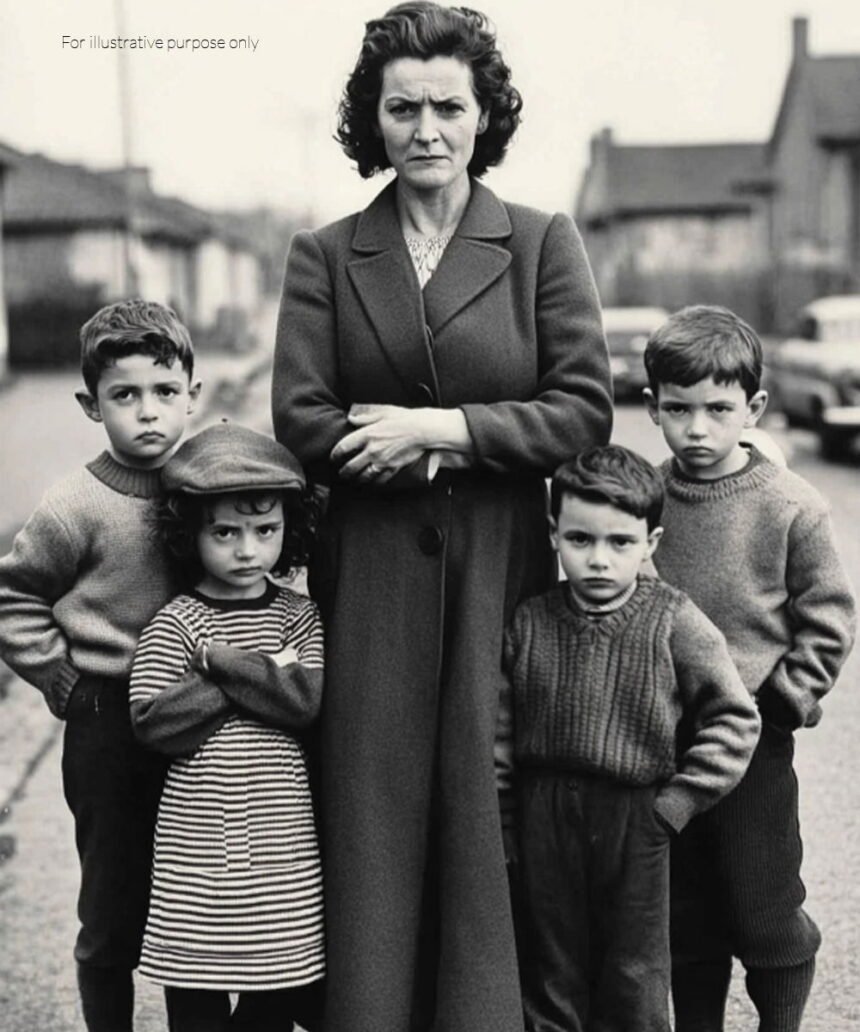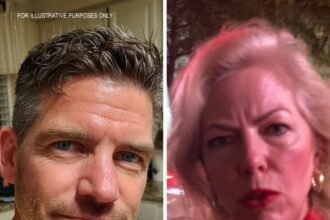– You gave birth to four? Take them and figure it out yourself, this is too much! – my husband said to me, barely crossing the threshold.
I looked at him without blinking.
My head was empty.
Labor lasted 18 hours. The flickering light of hospital lamps. The screams of midwives.
My scream, tearing apart the border between life and death.
When the first baby – Petya – was born, I thought that this was the end of the road, I fell into oblivion, although I knew that more would follow. But Masha appeared after him. Then Lena.
And, finally, Oleg.
Sergey stood at the front door of our house, without taking off his outerwear. In his hand – a bottle. Drops from it fell on the worn floor, but I did not care at all.
— I didn’t agree on this, — he continued, avoiding looking at the children.
— I wanted a normal family. Not… this.
“This” — were our offspring. Our flesh and blood.
Our eyes, noses, fingers.
Village women give birth in pairs — already an event. Three — a topic of conversation for many years. Four…
“How are you going to feed them?” — Sergey nervously ran his hand through his hair.
— Where will we get the money? Who will look after them?
I was silent. The children were sleeping.
The world narrowed to a small room with four cradles, made by my father in one sleepless night.
“Tanya, do you hear?” — he raised his voice.
“You knew and were ready, and now you’re saying this? Go away,” I said quietly. “Just disappear.”
Sergey froze.
Then he shook his head:
“You’re crazy. Four children. My God.
I didn’t believe it until the very end.
He closed the door behind him.
I stood by the window, watching his silhouette dissolve into the twilight. Sergey walked quickly. He never turned around.
Galina, the neighbor, was the first to arrive.
Without a word, she took a broom, swept up the ashes, and lit the stove. Then Nina Petrovna, the former teacher, appeared.
She sat down by the cradle and began to sing. By evening, other women had arrived.
Someone brought soup, someone brought diapers.
“You’ll hold out, girl,” said Baba Klava, the oldest woman in the village. “You’re not the first, and you’re not the last.”
And at night I was left alone. The children were sleeping.
It was so quiet in the house. On the table were four birth certificates. Four names.
I didn’t cry.
The tears froze somewhere inside. Instead, there was determination, as hard as a rock.
I called my father. “Daddy,” I said.
“He’s gone.”
A pause. Heavy breathing. “I’ll come tomorrow,” he answered simply.
That night, I made a promise to myself.
“I can handle it,” I whispered.
My father arrived in the morning.
He looked at his grandchildren. He put all the money he had on the table.
– I’ll build another room. It will be cramped with four in the winter.
That’s how our life began.
Without Sergei. Without self-pity. With love that blossomed like an apple tree outside the window — stubbornly, no matter what.
The childhood of my four children flowed like a river — sometimes violently, sometimes calmly, but always filling the banks with life.
Our father’s house on the edge of the village became our refuge.
“It’s not right for children to grow up without grandma’s fairy tales,” my mother said, hugging each of them.
The children grew up like sunflowers — all in different directions, but toward the same sun.
Masha — slender, dreamy, with gray eyes, knew how to find beauty in everything.
Petya — a strong, serious boy, all like his grandfather, already at the age of five he helped chop kindling.
Lena — the calmest, always with a book, built shelters for ants.
Oleg is a restless dreamer, with constantly skinned knees.
Our yard was filled with voices from early morning until late evening. What had previously seemed impossible became routine.
I learned to cook on the stove, holding a baby in my arms. I learned to darn clothes in the dim light, when everyone was already asleep.
I learned to stretch finances like pie dough – thinly, but so that there was enough for everyone. My father – Grandfather Ivan for the children – became their informal patron. He never coddled, did not fawn, but was always there.
Silent, solid, like a mighty oak tree by the river.
“Let’s go, eaglets,” he would say on Saturdays, gathering his grandchildren. And he would take them to the forest, to fish, to the field – to teach them worldly wisdom.
One day they returned in the evening, smeared with clay and hung with branches.
“What is this?” — I asked, meeting them at the gate.
— Roots, Mom, — Petya answered seriously. — Grandpa says you need to put down strong roots.
Then no storm is scary. That’s why we smeared ourselves with earth.
Later they planted a row of apple trees along the road to the house. Four young trees — for each of them.
As a symbol, as a promise.
Grandma Maria, my mother, became the keeper of our hearth. Round, soft, smelling of baked goods, she knew how to turn weekdays into holidays. — And what do we have today?
— the children asked every morning.
— Today is Titmouse Day! — she answered. — Or the day of the first snow, or the day of nuts.
And immediately a tradition was born, a fairy tale, a game associated with this fictitious celebration.
The children believed — sincerely, completely. Finances… Yes, it was not easy with finances. When the children grew up to three years old, I started working at the post office – half a day, while grandma looked after them.
At night, I sewed clothes for the children, painted old sweaters with bright patterns so that no one would guess – remade.
My father also worked, so there was
Doesn’t end here — it continues on the next page. Tap READ MORE to discover the rest 🔎👇





